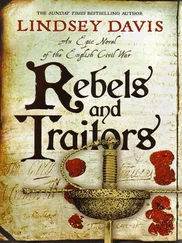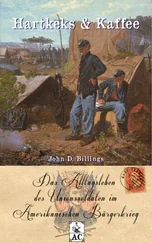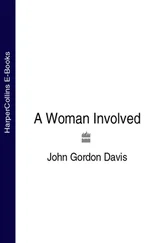‘Not at all.’ Harker smiled. Very relieved to be off the subject of South African hit-squads. He added, to ease his conscience about raising false hopes, ‘However, a bigger publisher may do better for you than Harvest House. But your literary agent will advise you on all that, of course.’
She said earnestly, ‘But I’d really like to give you first go at it, I mean, being a South African you know what I’m talking about, you’d be very helpful editorially.’
I’m a bastard, getting this woman’s hopes up, Harker thought. But he would be able to pass the buck to his editor. ‘Well, let’s drink to that prospect.’ He raised his glass.
‘Right!’ Josephine picked up hers and they clinked across the table. ‘Oh,’ she beamed, ‘this is exciting. I’m going to go home and work like hell on my revisions. Can we meet again next week, so I can show the first few chapters to you without dying of embarrassment?’
Harker grinned. ‘Same time, same place?’
‘Perfect. And I’ll be paying!’
‘You will not.’ The South African taxpayer was paying. Harker was very pleased she had relaxed. She’s a volatile one, he thought. He was pleased not because he was fulfilling Dupont’s orders so unexpectedly easily, but because he really wanted to meet her again next week. Even if, regrettably, he might never get laid now that their relationship had unfortunately degenerated into a potential one of publisher and author – Ms Josephine Franklin Valentine looked too smart to make the mistake of sleeping with her mentor. Authors like to keep their publishers on pedestals. But had she not screwed plenty of army officers for helicopter rides into battle-zones? He said: ‘So, shall we order?’
‘I feel like getting drunk first!’
Harker laughed. ‘So do I.’ He beckoned to their waiter and pointed at the wine bottle for a replacement. He turned to Josephine. ‘So,’ he said, not for duty’s sake, ‘tell me why you got deported from South Africa.’
‘The cops raided my hotel room, confiscated my writing and escorted me on to an aircraft to London.’
‘But what had you done to make them raid your hotel room?’
Josephine smiled. God, she was beautiful.
‘When the Soweto riots broke out in South Africa – turmoil. I flew down to Johannesburg to get some action. I had to tag along behind the press corps – not being a full-blooded journalist accredited to any newspaper I was vulnerable. Anyway, there I was, a hanger-on, and the police commander called a press conference to explain to the world why so many blacks had been killed in Soweto that day. And I had the audacity to say: “But Brigadier Swanepoel, couldn’t you have used rubber bullets instead of real ones?” And Brigadier Swanepoel looked at me with his Afrikaner beetle-brow’ – Josephine furrowed her forehead in imitation – ‘and responded: “Rrubber bullets? Madam, I will starrt using rrubber bullets when those kaffirrs starrt thrrowing rrubber rrocks!”’
Harker threw back his head and laughed.
Of course she’d done a hell of a lot more than criticize Brigadier Swanepoel to antagonize the authorities into deporting her: Dupont had said in his covering report that she shouldn’t have been let into the country in the first place. She was obviously a communist, the South African Embassy in America should never have granted her a visa, somebody had slipped up as fucking usual. But Josephine didn’t want to talk any more about it. ‘It’ll all be in my book, I don’t want to steal my own thunder by telling you twice, so let’s just have a jolly lunch …’
And it was jolly. The initial suspicions and fencing behind them, the conversation flowed like the wine, copiously. She hardly mentioned her experiences as a photo-journalist again: instead she regaled him with anecdotes about her other adventures around the world, her work for the anti-apartheid movement in London, her investigation into the politics of Hong Kong, into the plight of the Aborigines in Australia, of the Palestinians in Israel, the plight of the whale, the coral reefs – ‘The whole goddam environment’s in a mess!’
‘Did you write about all those subjects?’ He had not seen any cuttings about the environment in her CCB file.
‘You bet. I’ll show you my file of cuttings one day.’
She wanted to set the world on fire. ‘But I’m not a communist, Jack. I’m all for enterprise, it’s the unacceptable face of capitalism I’m against. The monopolies, the exploitation, the sweated labour.’ She waved a hand. ‘Of course, when I was a starry-eyed freshman at university I went through the usual phase of communist idealism, but I grew out of that. And I think the world had to go through this period of communist revolution to sweep aside the feudal injustices of centuries, to redress the obscene imbalance of wealth and power that existed at the time. I admire the communists’ achievements.’
Like what? Harker was about to say, but changed it in his mouth: ‘Which ones?’
‘It’s undeniable,’ she said earnestly, ‘that the average Russian and Chinese peasant – the vast majority of those two massive countries – it’s undeniable that they’re much better off now than before their revolutions.’
Harker didn’t want to argue but he had to say, ‘But it’s 1998 now, and though the average Russian and Chinese probably is better off than his grandparents, he’s still very poor compared to his modern Western counterpart.’
‘Yeah? What about the poor of South America? The masses of India? They’re supposedly “Western” too in the sense that they’re in the West’s sphere, of influence.’
‘But the moral wrongs in those countries don’t make the economic and moral wrongs in Russia and China right, do they?’
‘True.’ She grinned. ‘So we’re coming up with profound truths. And I’m feeling more profound every minute.’ She pointed her finger at his nose. ‘But only a revolution will sweep aside the wrongs of most Third World countries, and the only power capable of making such a revolution is communism. All the other kinds are pussy-footing and piss-weak. So I applaud those underground communists who’re plotting to overthrow the repressive governments of Argentina and Chile and the like. I applaud the likes of Fidel Castro – I support the Cubans in Africa because even if they are driven back into the sea as you want, I betcha –’ she jabbed a finger – ‘that win or lose the Cubans will have been a big factor in the eventual collapse of apartheid.’
She looked at him an earnest moment, then thrust her warm smooth hand on his. ‘But even though you don’t like that, Major Jack Harker, sir –’ she gave a little salute – ‘will you please please please still consider publishing my shit-hot humdinger of a book?’
Harker threw back his head and laughed. It all seemed terribly funny.
‘Oh …’ she laughed, ‘I’m having a lovely day …’
Yes, it was a lovely day. On their second Irish coffee he just wanted to take her hand and walk with this lovely young woman through this lovely park with its trees in full summer bloom, its lovers and roller-skaters and musicians and horse-drawn carriages – just walk hand in hand, being frightfully learned and amusing, telling each other more about each other, going through that delightfully earnest process of impressing: that’s what Jack Harker wanted to do, then hail a taxi to take them back to his nice old apartment off Gramercy Park, then fold her in his arms. But there was going to be none of that delightful business: it was a non-starter because Josephine wanted to rush home to work.
‘While my writing blood is up! I’m not going to waste all this booze, I’m going to go’n pound out the prose so I bowl you over next Saturday, Jack Harker of Harvest House fame …’ She blew him a dazzling kiss as her taxi pulled away from the Tavern on the Green.
Читать дальше












